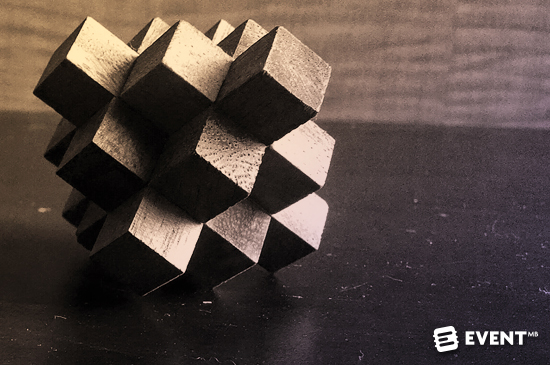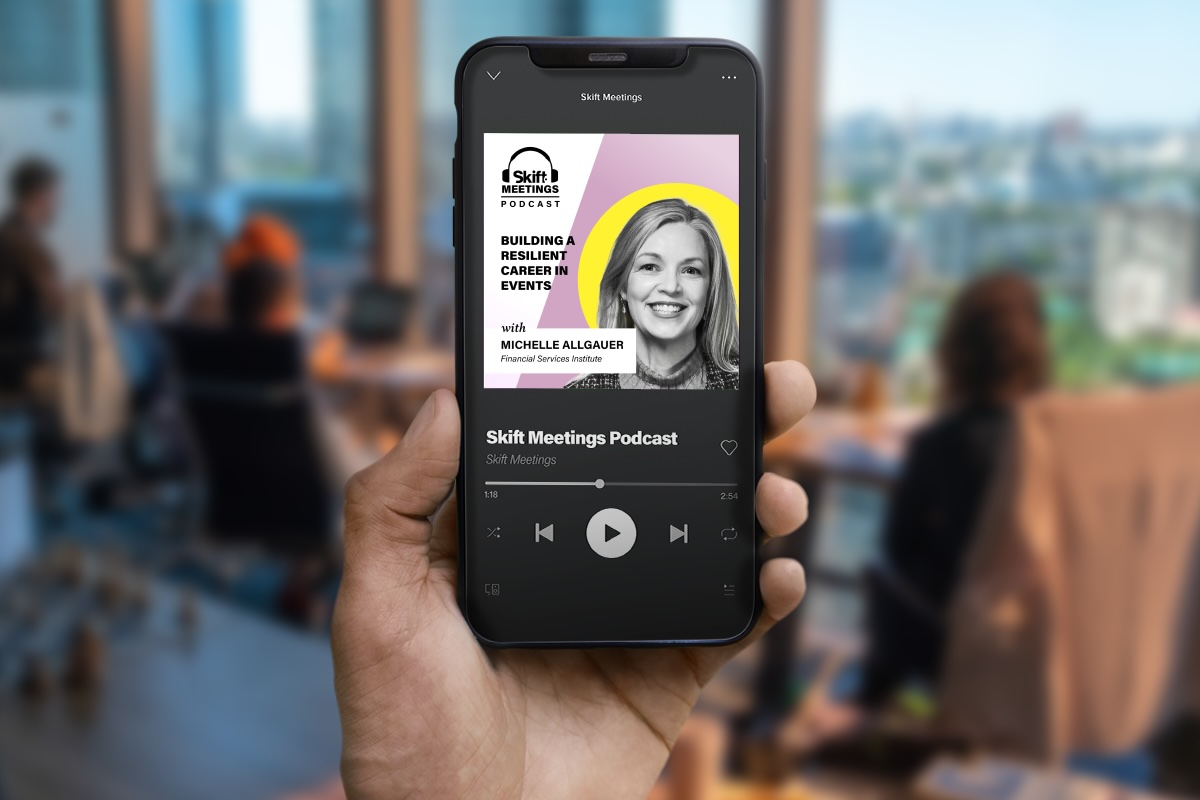Skift Take
Here are some easy and helpful techniques and ways to help you sharpen your mind and up your event planning game to stay ahead of the competition.
A sharper mind can give better focus, help you to be more innovative and creative and deal with the inevitable workload that all event planners face. Recently, if you have had more “mental blocks” or been unable to think of new original ideas it might be time to employ some of these techniques to re-evaluate where your mind is at and help improve your focus.
-
Sleep
How much sleep are you getting? We all love our bed and it turns out that regular or good quality sleep is the key to brain function but it isn’t just a decent night’s rest that we need. In fact, research shows that naps can improve cognitive performance and even brief 5-20 minute naps have immediate benefits, so it comes as no surprise that innovative companies like Google and UK’s Manchester University have their very own nap pods or ZZZ Zones.
It is important to keep your naps under 20 minutes though because any longer and you will see a decline in brain function and you will just feel tired and irritable, so always set an alarm. Also, one of the main causes of poor sleep for professionals is the amount of blue light before bed. Tablets, smartphones and laptops all emit shorter wavelengths which hinder the production of the sleep-inducing melatonin hormone which means looking at your phone before bed to get to sleep, can actually keep you awake.
As an eventprof it can be hard to switch off but giving yourself even just an hour before bed without any devices can help improve your sleep quality and productivity for the following day. It will also sharpen your mind, improve focus and reduce burnout, stress and anxiety!
-
Cognitive Training
The phrase use it or lose it is definitely true when it comes to the mind and the more you train your brain, the sharper it becomes. Look at completing complicated puzzles and games such as Sudoku or chess as well as those that use physical skills as well as reasoning such as the Rubik’s cube. Not only does cognitive training help sharpen your mind and boost your problem solving skills but the Alzheimer’s Society actively encourages it to help reduce symptoms of those suffering and prolong cognitive function in old age. You are never too young to start.
Another option is to take up a new hobby or learn something new, for example learning a musical instrument or a new language in particular has shown to improve cognitive function overall.
-
Set Yourself Challenges
Event planning can mean you follow the same thought process or tactics and if you have been doing it for a few years you can find yourself working on autopilot and using minimal brain power. Try to keep things fresh by challenging your brain and yourself at work, for example setting yourself strict deadlines (with rewards if you make it) or offering to help someone else to meet theirs. Alternatively you could collaborate with someone else on an event type or theme you haven’t tried before and this will help to break out of the robotics of what you have been doing and sharpens the mind for your own work (you may even see yourself looking at your normal processes through a fresh set of eyes!)
-
Manage Your Stress
Event planning is stressful and while some stress is unavoidable and comes with the territory, it can seriously hinder your focus and distract you. If you are too busy worrying about what could, might or won’t happen and all of the things you need to get done, you aren’t using your brain power productively. There are some quick fixes to managing stress such as taking short breaks or walks around the office, which help to get you out of the situation before it becomes too overwhelming and help to adjust your perspective before you go back to it.
Alternatively, asking for help can reduce pressure and help to keep you focused knowing that some tasks are being dealt with and there are also other methods such as meditation. While it is maybe not suitable to practice at work (except in your lunch hour?) it can provide you with useful long-term techniques to help focus, sharpen the mind and also deal with stress day-to-day.
-
Be Social
As social animals, human brains are stimulated by interaction with others and this creates an exercise for the brain in some of the creative centers, as well as for the memory. Research among the elderly showed that social interaction helped reduce the decline of memory and boosted brain function in the patients who had higher levels of volunteer activity as well as more frequent social contact with neighbours, friends or family.
As an event planner you may often work in teams and this will help to boost your cognitive function but you should also aim to be social, not just focusing on job related tasks, instead ask someone out for a coffee and talk about other things and this can help reduce memory loss and keeps the brain sharp for the future. It is also important to laugh and have fun as laughing can help to broaden your thinking making you more creative and free thinking.
-
Boost Your Organisation
Being disorganized can leave you feeling frazzled and unfocused rather than sharp so there are a few easy things you can do to help boost your brain power. The first is to take notes, whether it is by hand or on your tablet there is no point trying to remember everything from a meeting with a client or supplier, it not only increases the chances of getting something wrong but it focuses all of your brain power on memory and not productivity. Many event planners also swear by the power of to-do lists.
Additionally, keep a diary or calendar, while remembering dates can be a useful cognitive exercise to improve the memory portion of your brain, it doesn’t help with the workload and means you are constantly trying to remember things in the back of your mind rather than focusing on what is right in front of you. Here’s 10 ideas for a more organized 2017.
-
Exercise
If you are looking for a way to sharpen your mind and get healthy at the same time, endurance exercise is some of the best to opt for. Long runs, bike rides or swimming, or any exercise that requires being near your threshold for longer periods of time can help improve brain concentration, stamina, focus and performance. Exercise can also reduce age related brain degeneration and keeps the brain sharp for those getting a bit older, because studies and research has shown that those who frequently endurance exercise are better able to allocate resources in the brain and process information quicker.
-
Brainwave Entrainment
This is a way to stimulate the brain using pulsing light, sound or electromagnetic field. For example an audio track that has repetitive sound patterns can help to promote your state of focus and keep you alert and train the brain. Many studies have been done and showed positive outcomes that audio brainwave training can boost performance and reduce stress, particularly for those working in high powered environments. There are a number of options you could try and many are available for easy download which gives easy access if you are at your desk and need to focus.
The benefit of these is that they help to reduce background noise at the same time as boosting your brain function which means that even if you share an office it can still be beneficial. Some people find this is also a great way to reduce anxiety which could be an interesting coping mechanism to try.
-
Watch What You Eat
Much of what we eat and consume is used for fuel so it is unsurprising to learn that the type of food we eat can affect brain function. For example it has been suggested that avocados, blueberries, beets and broccoli are all foods that can help boost focus and memory. But, while there are “brain boosting” foods that have been shown to have the minerals that help brain function, a healthier balanced diet if this best long term solution. The main point to note is sugar, because although you may feel more focused (briefly) a diet high in sugar can damage your brain function and also creates peaks and troughs of work which is only remedied by more sugar.
That being said, sometimes you need something to push you through to your deadline and if all else fails, small amounts of wine or coffee can also help to stimulate the brain and improve short-term higher brain function. Beware though, it is a very fine line and not a reliable coping strategy. Drinking too much, too often can get you in a lot more trouble than the short term benefit you gained.
In Conclusion
As you can see there are many ways you can sharpen your mind but essentially use it or lose it! Challenge yourself, stop going into autopilot and improve your lifestyle and these will all help to keep that sharp focus at work. If nothing else, at least now you also have an excuse to nap during the day!





